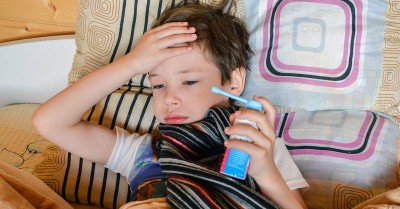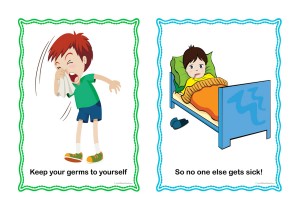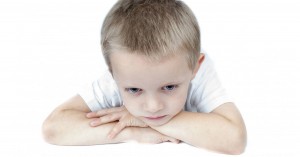As the winter approaches, while working in a service, Educators and children will be prone to colds and flu this season and with the coronavirus epidemic still, around, symptoms can be similar.
Colds, Flu and the Coronavirus are spread via person to person contact so it's important to maintain hygiene practices at the service to ensure to stop the spread of any virus and to keep a healthy environment.
Cold
A cold can cause any or all of these symptoms:
- Runny or stuffy nose
- Cough (mild)
- Fatigue (sometimes)
- Sneezing
- Watery eyes
- Sore throat
- Headaches (rarely)
- Aches and pains
A typical cold will last on average 7 to 10 days.
Flu
Some common symptoms of the flu:
- Fever and/or chills
- Cough (usually dry)
- Fatigue
- Aches and pains
- Runny or stuffy nose (sometimes)
- Sore throat (sometimes)
- Diarrhea (sometimes in children)
It’s a common respiratory infection caused by a virus that affects your nose, throat, and lungs and can last from 5 to 7 days.
Coronavirus
Symptoms of COVID-19 can include:
- Fever and/or chills
- Cough (usually dry)
- Shortness of breath or difficulty breathing
- Tiredness (sometimes)
- Aches and pains (sometimes)
- Headaches (sometimes)
- Sore throat (sometimes)
Upper respiratory symptoms, like runny nose and sinus congestion, are very uncommon in COVID-19.
Differences Of Symptoms

Prevention
Flu
The best way to prevent flu is to get the flu vaccination. In some cases, those who continue to get the flu even though they have been vaccinated will usually get milder symptoms of the flu.
Coronavirus
There is currently no vaccine available for the Coronavirus. best prevention methods include:
- Washing hands regularly
- Avoiding touching the face
- Keeping at least 6 ft away from anyone sneezing and coughing
- Covering the mouth when sneezing or coughing
- Staying at home if feeling unwell
If your service has a sick child, you must:
- ensure that unwell children do not attend your service, as per national guidelines (Staying healthy: preventing infectious diseases in early childhood education and care services, 5th edition)
- isolate children who became unwell during the day from other children and send the unwell child home as soon as possible
- exclude the unwell child
- notify the department immediately if a child is suspected of having one of the six infectious diseases listed above; please call the department even if you believe a doctor has already done so
- defer any action, such as alerting parents, excluding unwell children or displaying signage, until directed to do so by the department.
It's important that no sick educators or children should be made to stay at the service. They should be excluded until they are well again.
For more information on exclusion periods: Exclusion Periods For Infectious Diseases In Early Childhood Services
For more information on Educators Guide To Staying Healthy During Winter
Note: This information is to be used as a general guideline only. Please ensure that if you are feeling unwell that you seek medical advice immediately.
References:
What's The Difference Between A Cold, The Flu, Seasonal Allergies and Coronavirus?, Intermountain Health Care, 10 April 2020
New coronavirus vs. flu, Medical News Today, 19 May 2020







 As an Educator in Australia, your pay rate falls under the Children’s Services Award 2010. This award states the minimum amount that an employer can
As an Educator in Australia, your pay rate falls under the Children’s Services Award 2010. This award states the minimum amount that an employer can When working as a qualified Early Childhood Teacher (with a university degree) within a service, your rate of pay will come from the Educational Services
When working as a qualified Early Childhood Teacher (with a university degree) within a service, your rate of pay will come from the Educational Services When working as a Diploma Qualified Educator your pay rate is from the Children's Services Award 2010. This Award states your minimum rate of pay
When working as a Diploma Qualified Educator your pay rate is from the Children's Services Award 2010. This Award states your minimum rate of pay When working as a Cert 3 Qualified Educator, your pay rate is from the Children's Services Award 2010. This Award states your minimum rate of
When working as a Cert 3 Qualified Educator, your pay rate is from the Children's Services Award 2010. This Award states your minimum rate of Educational Leaders play a crucial role in their early childhood service by ensuring that the educational program aligns with best practices and supports the holistic
Educational Leaders play a crucial role in their early childhood service by ensuring that the educational program aligns with best practices and supports the holistic In early childhood education and care, ratios are more than a technicality—they are a frontline safeguard. Every child deserves responsive supervision, emotional connection, and developmental
In early childhood education and care, ratios are more than a technicality—they are a frontline safeguard. Every child deserves responsive supervision, emotional connection, and developmental With the new national child safety reforms kicking in on 1 September 2025, early childhood services like yours have a real opportunity to lead the
With the new national child safety reforms kicking in on 1 September 2025, early childhood services like yours have a real opportunity to lead the Here’s a comprehensive Mobile Phone and Smart Watch Policy tailored for early childhood education and care (ECEC) services in Australia, aligned with the latest 2025
Here’s a comprehensive Mobile Phone and Smart Watch Policy tailored for early childhood education and care (ECEC) services in Australia, aligned with the latest 2025 The Sea of Fish Challenge is a national initiative that invites children, educators, families, and communities to create and display fish artworks as a symbol
The Sea of Fish Challenge is a national initiative that invites children, educators, families, and communities to create and display fish artworks as a symbol Across the early childhood education and care sector, educators are sounding the alarm: current staffing ratios are insufficient to deliver safe, meaningful, and developmentally appropriate
Across the early childhood education and care sector, educators are sounding the alarm: current staffing ratios are insufficient to deliver safe, meaningful, and developmentally appropriate


